Theater for all, all out for theater: PETA celebrates 50 years
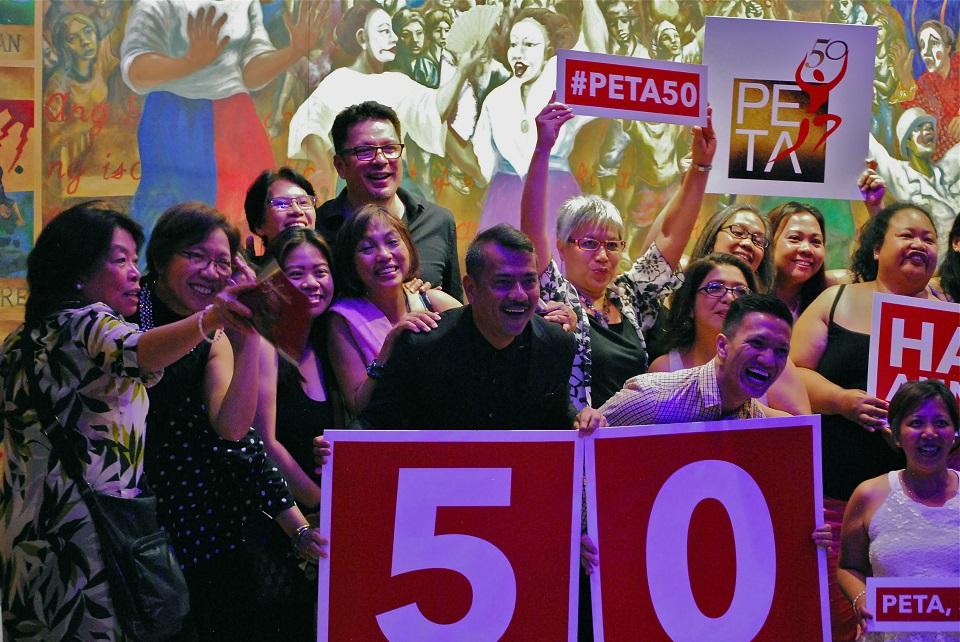
The Spanish playwright Federico Garcia Lorca once wrote that “a nation which does not help and encourage its theater is, if not dead, dying.”
This was certainly not the case on the night of April 8 at a modern four-storey building in New Manila, where the pioneering theater group Philippine Educational Theater Association (PETA) celebrated its rich 50-year-old history with a concert attended by some of the most respected names in Philippine culture.
Dubbed “Singkuwenta,” the concert, a collaborative effort by PETA artists Anj Heruela (script), Melvin Lee (direction), Jeff Hernandez and Myke Salomon (musical direction), was an electrifying melding of narration, music and dance. Structured in several musical suites that distill a particular mood in our nation’s history, “Singkuwenta” succeeds in entertaining the viewer while making scathing commentaries on our country’s social ills.
For instance, in the Pilipinas Circa 1907 Suite (performed by Joel Lamangan, Upeng Galang-Fernandez, Avic Ilagan, Glecy Atienza, She Maala and Neomi Gonzales), one is taken back to the turn of the 19th century, when instead of fighting back, many Filipinos accepted and even embraced the enemy: colonialism.
Another number, “Awit ng Karnabal” (performed by Rody Vera), is based on German dramatist Bertolt Brecht’s meditation on dogmatism, another unseen enemy.
Yet another number (“Pahimakas ni Joe Hill”) is about a great injustice done to a poor immigrant worker who loves to write songs (and is a true story). In the end, the real enemy of the Filipino is the Filipino himself. He must free himself from the tyranny of his own passivity and apathy, which is why many of PETA’s productions are bursting at the seams with such manic energy and passion.
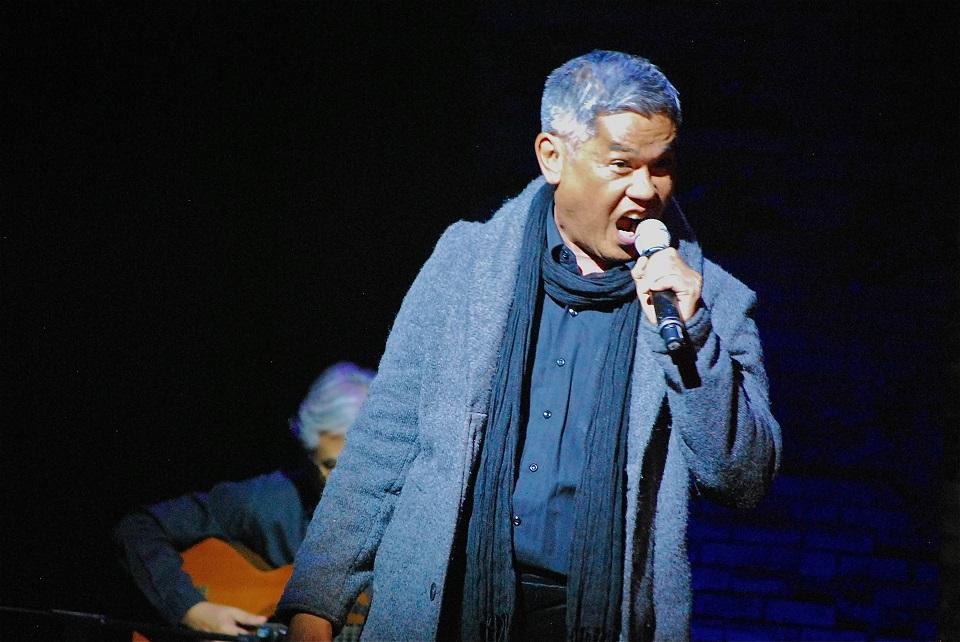
The dark night of the Filipino soul is vividly captured in an avant-garde arrangement of Rody Vera’s “Diablos” (collectively composed by Vincent De Jesus, Lucien Letaba, Ronnie Quesada and Louie Pascasio). Performed by the UP Singing Ambassadors under the helm of conductor Ed Manguiat, “Diablos” is a vigorous movement piece with a lot of heavy breathing, moaning, and bamboo pole dancing. They are Filipino demons made real.
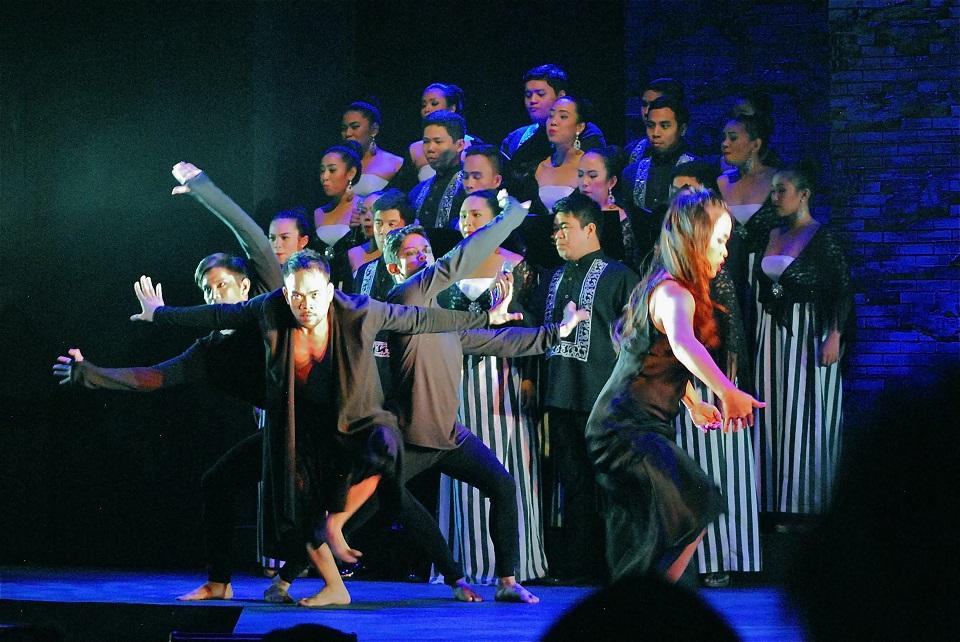
Because most of the songs in the program are strong and anthemic, the sweet and fragile love songs provide a welcome contrast, as in Charley dela Paz and Lucien Letaba’s “Paghahanap ni Oryang” (performed by Cynthia Guico), about Gregoria de Jesus’ search for the corpse of the slain hero Bonifacio; the Kundiman Suite, with works by literary greats Francisco Balagtas and Aurelio Tolentino set to music by PETA’s Lutgardo Labad and Louise Pascasio; and Manny Pambid and Louie Pascasio’s “Sa Hirap at Ginhawa,” about the magician Canuto Francia, the Filipino Charlie Chaplin.

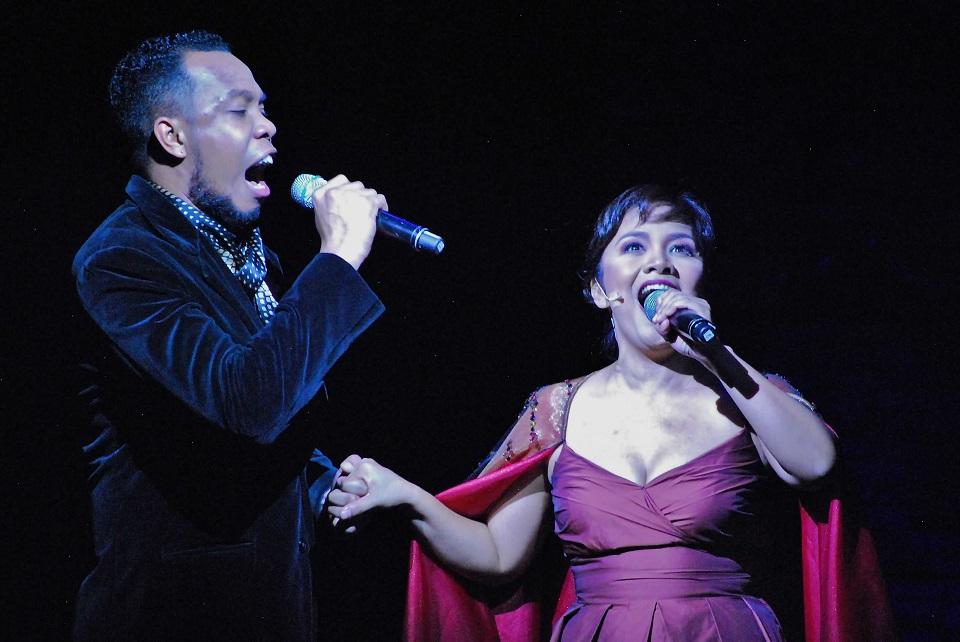
A PETA artist is a Walt Whitman character: he contains multitudes. He is multi-tasker, multi-hyphenate extraordinaire: singing here, writing there, acting here, managing there. It’s all part of the philosophy lived by each member: to be whole while helping the nation find itself. Several of them are (by their own members’ admission) pillars of PETA’s current existence: PETA president CB Garrucho, executive director Beng Santos-Cabangon, director Maribel Legarda, and founder Cecilia Guidote-Alvarez.
Onstage, the power of this holistic philosophy is best expressed in the number “Padayon,” a song composed by four people (Robert Andres, Joanna Katanyag, Melvin Lee, Jeff Hernandez) and sung by the PETA Choir, a hardworking group that assembles and disassembles itself all throughout the program. It’s a pretty awesome sight to see the same people literally play different roles over and over on stage.
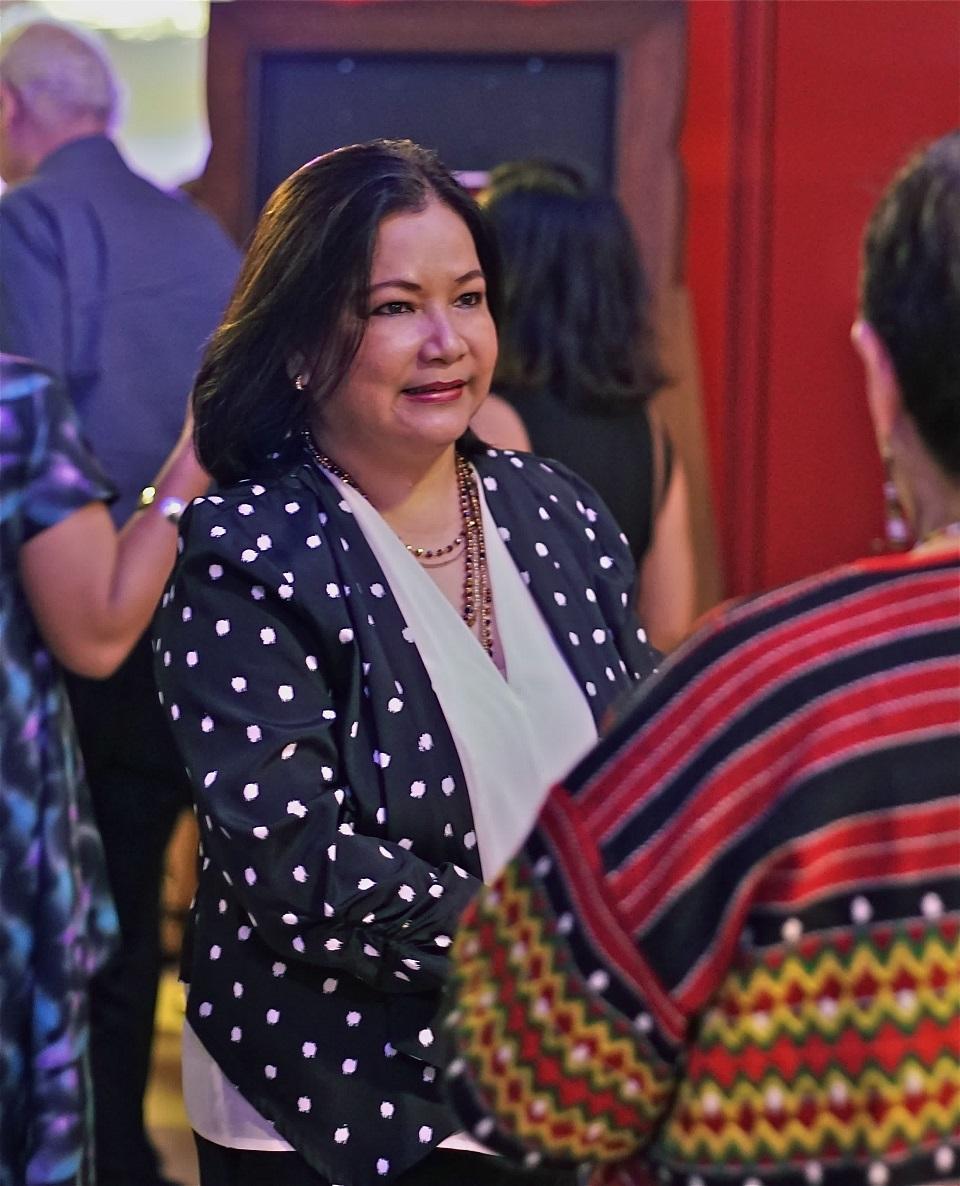
In between the production numbers, PETA artists Soxie Topacio, Mae Paner, Dessa Quesada-Palm, Cris Gonzales, Meann Espinosa and Joel Lamangan share highlights of PETA’s history with the audience, improvising lines, throwing each other knowing looks and basking in the solid intimacy that only a shared history can create.
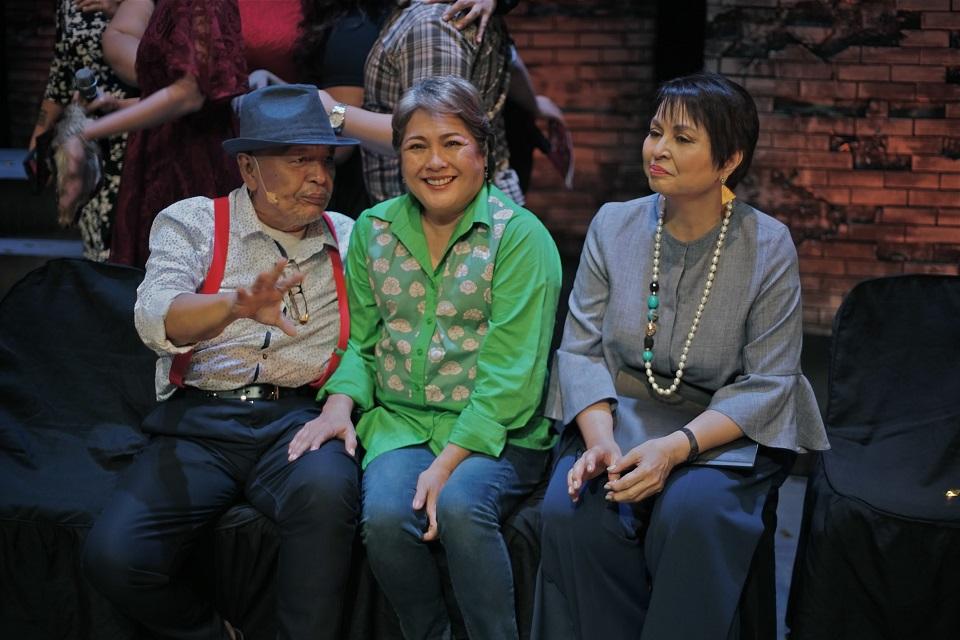
Midway through the concert, the mood shifts as songs from current plays are performed: Francis Magalona’s 3 Stars and A Sun; a musical suite aptly called Good Vibes, performed by the PETA Choir; the mind-bending Gender Suite (featuring Vincent De Jesus’ Caredivas), and the long-running Rak of Aegis Suite (written by Liza Magtoto and featuring the music of Aegis, with “Munting Pangarap” easily the crowd favorite).
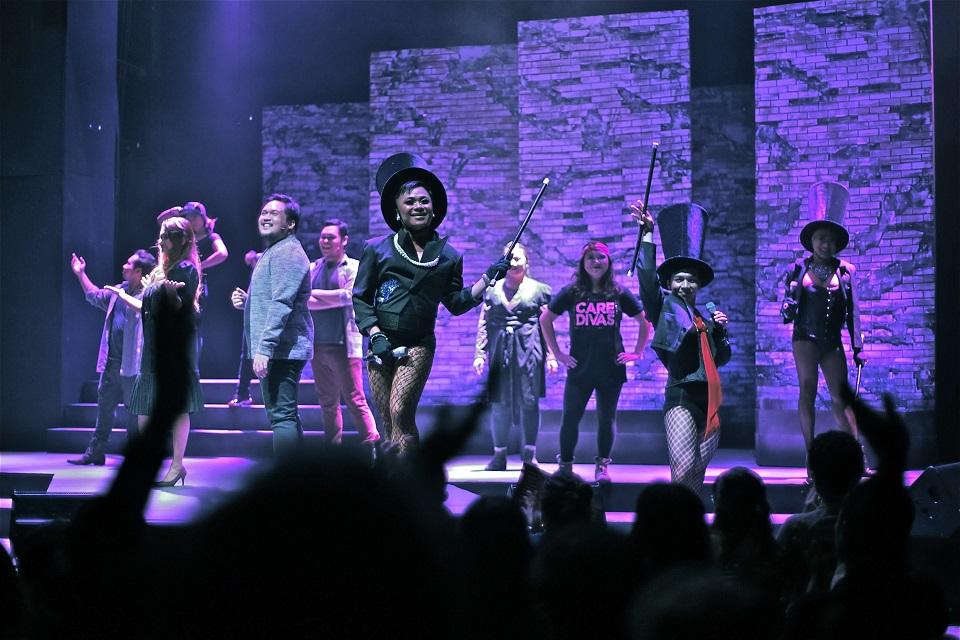
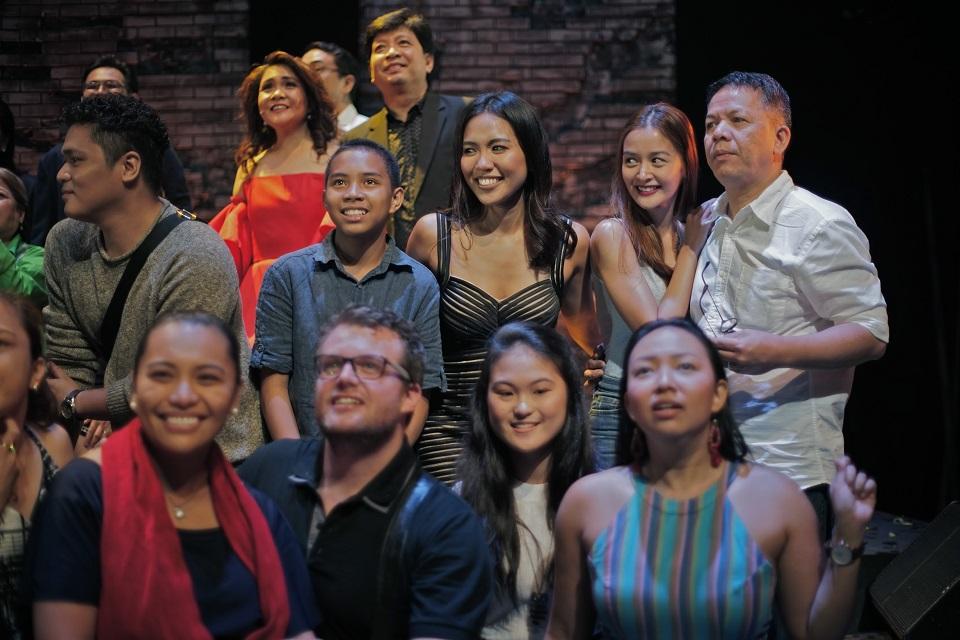
The night ends with the spine-tingling Makabayan Suite, featuring works by statesman Jose Diokno and nationalist poet Pete Lacaba. Everyone from PETA’s past and present then gather on stage to sing these anthems. Some members are teary-eyed, if not crying already. The achievements have been immense, but time has no mercy. People come and go, moods and rhythms change, the cycle of rest and unrest continues, and the PETA artist cannot bear to just sit on his laurels. He must act. Always. And boy, does he do it oh so well.
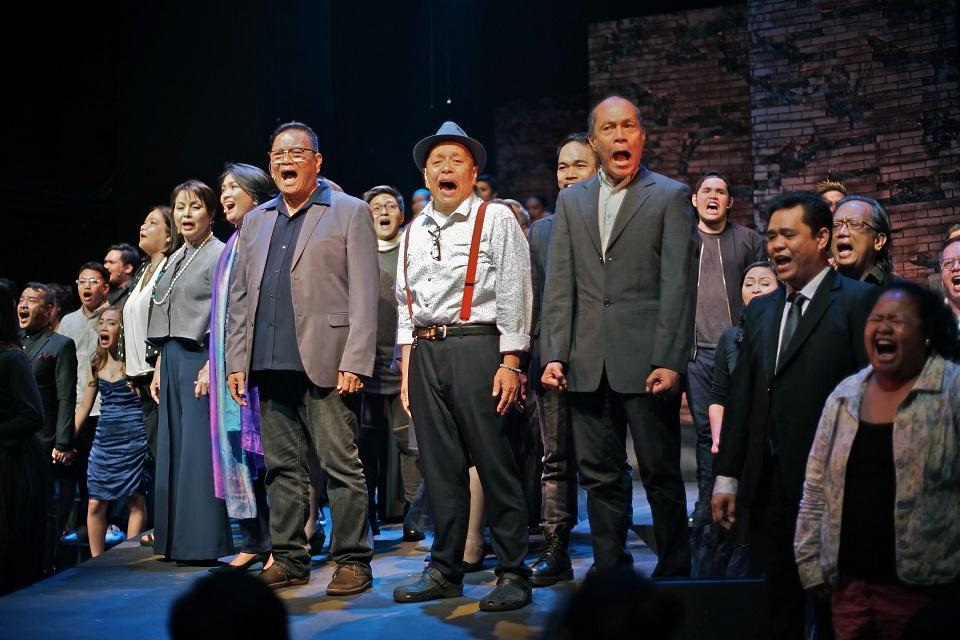
— BM, GMA News




